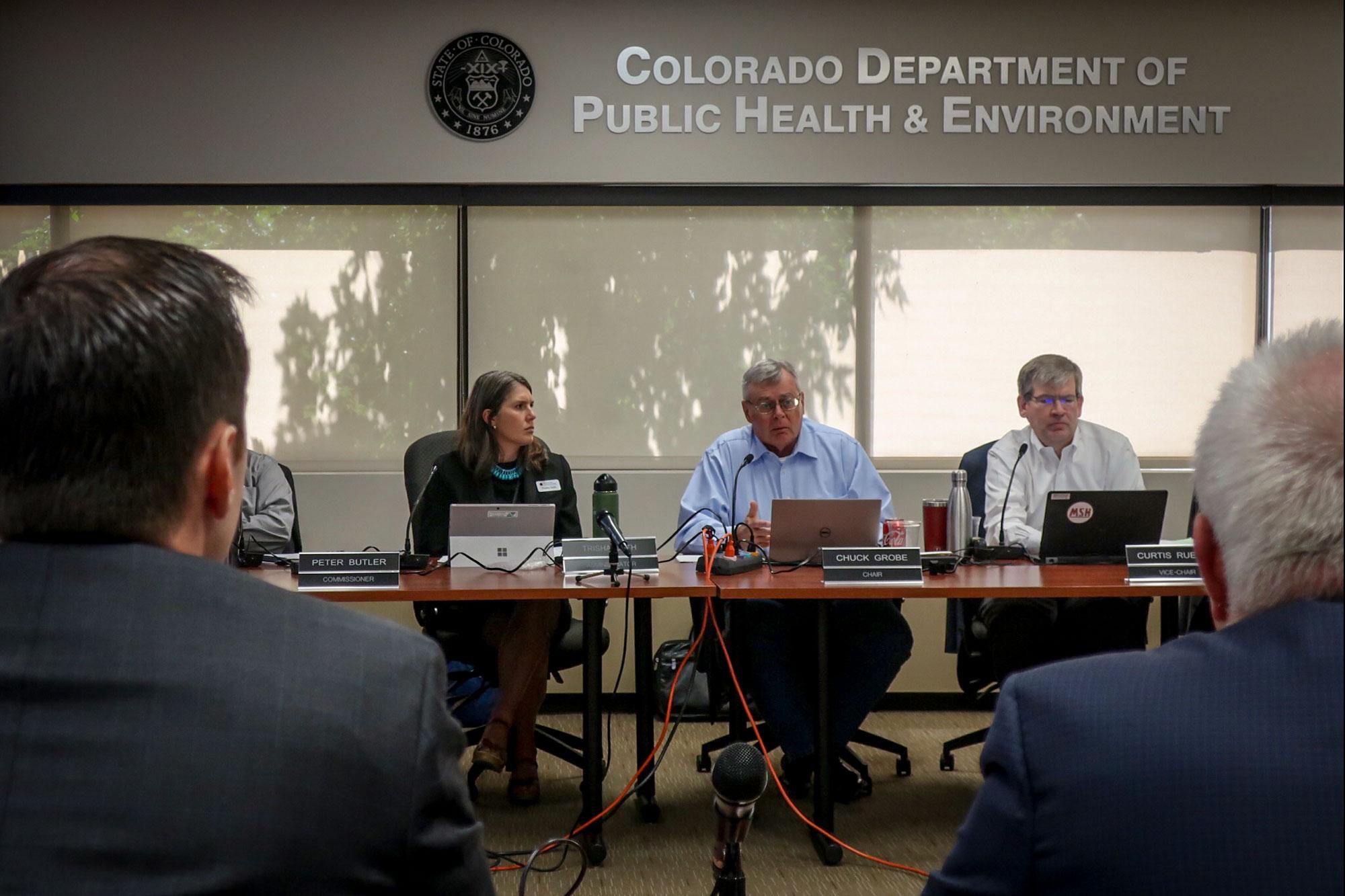
Colorado’s Air Quality Control Commission voted Friday, eight to one, to adopt California’s Zero-Emission Vehicle program.
Automakers will now be required to sell electric vehicles. The standards mandate that zero or low-emission vehicles should account for almost 5 percent of the state’s sales by 2023. The vote follows Gov. Jared Polis’ January executive order to get more electric cars on Colorado roads.
Ten states already participate in the ZEV program. Supporters see the vote as an important step toward tackling climate change and protecting public health. By 2020, transportation is expected to account for 25 percent of the state’s carbon emissions. Overall, emissions are on the decline but transportation may take up a bigger share of that.
Jacob Smith, the executive director of Colorado Communities for Climate Action, sees the vote as a big win for the entire state, especially for rural Coloradans who often have particular vehicle needs.
“We know that electric vehicles work really well in more urban areas, and that's why we're seeing so many people who want them and buy them,” Smith said. “But the options for folks that live in other parts of the state haven't always met with those folks need, and the ZEV standards are going to help make sure that happens.”
Air Quality Control Commissioner Elise Jones was a ‘yes’ vote in the hope of providing more consumer choice when it comes to EVs. She found the process thoughtful and comprehensive and appreciated the public input from across Colorado.
“It will also help us address our ozone problem as we have more bad air days. This is an increasing priority for folks in the Metro area,” Jones said.
The AQCC commission got pushback throughout the process from the Colorado Automobile Dealers Association. Executive director Tim Jackson argues the EV requirements will increase the cost of certain new vehicles and said the market should drive change instead of regulation.
In a presentation during the hearing, Jackson said if the program is adopted automakers will push auto dealers to include EVs in their inventory even if consumers don’t want them. He said that consumers continue to avoid EVs because they cost more than comparable vehicles that run solely on gas.
His presentation read that “if demand does not meet supply, we will have inventory costs to pass on to the customers and large losses on the sale of EVs.” Coloradans increasingly want SUVs, Jackson said, and that almost 80 percent of new consumer vehicles sold so far this year are from the light-duty truck category that includes pickups and SUVs.
“EVs haven’t made inroads in this category, so options aren’t there for consumers,” the presentation pointed out.
After the vote, Jackson said that while this a regulation aimed at automakers, it’s the dealerships and customers that could be the most impacted.
“They have to price their product according to what they’re obligated to do,” Jacksons said “We’ll have to work with our automakers to make sure that those cars are going into the channels that can move them better. As opposed to places especially like rural Colorado.”
In July, major automakers reached a deal with the state to allow them to earn credits for the EVs they sell in the years leading up to the program’s full adoption in 2023. They can use a limited number of credits they earn in other states, too. In a statement, the Alliance of Automobile Manufacturers and the Association of Global Automakers said they were glad to have found a path forward.
“We are extremely appreciative that the Polis administration worked with automakers and other stakeholders to find an innovative alternative regulatory proposal that will implement the ZEV program in Colorado," the statement said.
The Trump administration has said it wants to roll back federal emissions standards set by the Obama administration. But the world’s largest automakers told President Donald Trump in a letter that his plan threatens to cut their profits and could create instability.








